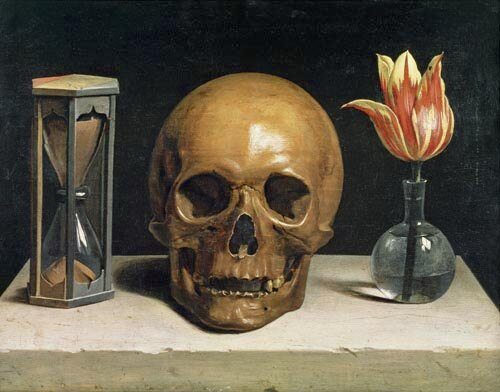
I have recently heard about the death of a much-loved Christian minister and it has made me stop for a moment to consider the brevity and flimsiness of my own life. Having spent my student days in Durham I have been greatly influenced by the Venerable Bede, a seventh-century English monk who portrayed in one of his manuscripts our life span “as though a sparrow flew swiftly through the hall, coming in by one door and out by the other.” We pass through and on. “The life of man is hasty,” says the English philosopher Thomas Hobbs (1588 – 1679).
Odd isn’t it that we try so hard not to think about death, when God insists that we do so. But we need to face our dying process because that’s how we “gain a heart of wisdom.”
Medieval monks, so I am told, used to keep human skulls in their cells bearing the Latin inscription Summus Moribundus (“We are destined to die”) to keep themselves focused on reality. A death sentence, as Samuel Johnson noted, focuses the mind mightily.
Once we grasp the fact that “we’re not long for this world,” we may begin to wise up. Hopefully, we’ll add up the days of our lives, reckon their number to be few and determine by God’s grace to make them count while we can.
In one of the books passed down to me by my late father, he had written these words which have left a lasting impression on my thinking –
Only one life will soon be past;
Only what’s done for Christ will last.
And when I am dying how glad I will be,
That the lamp of my life has been burned out for Thee.
John.